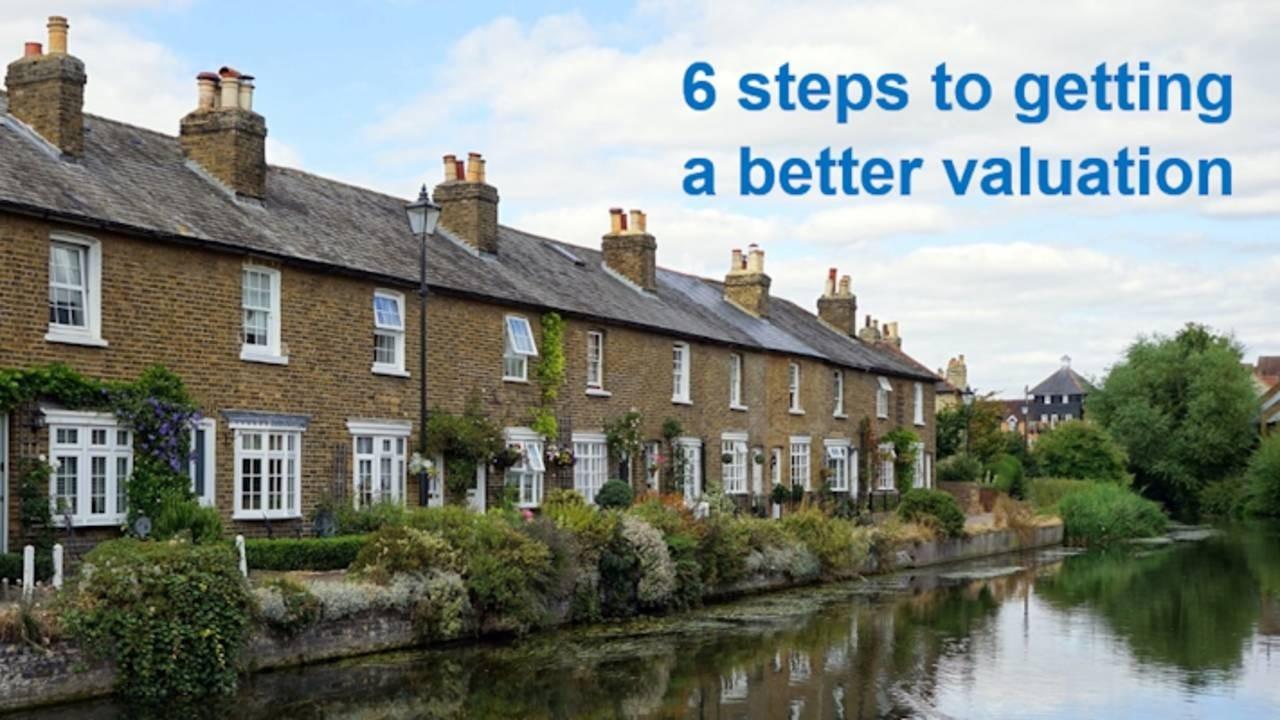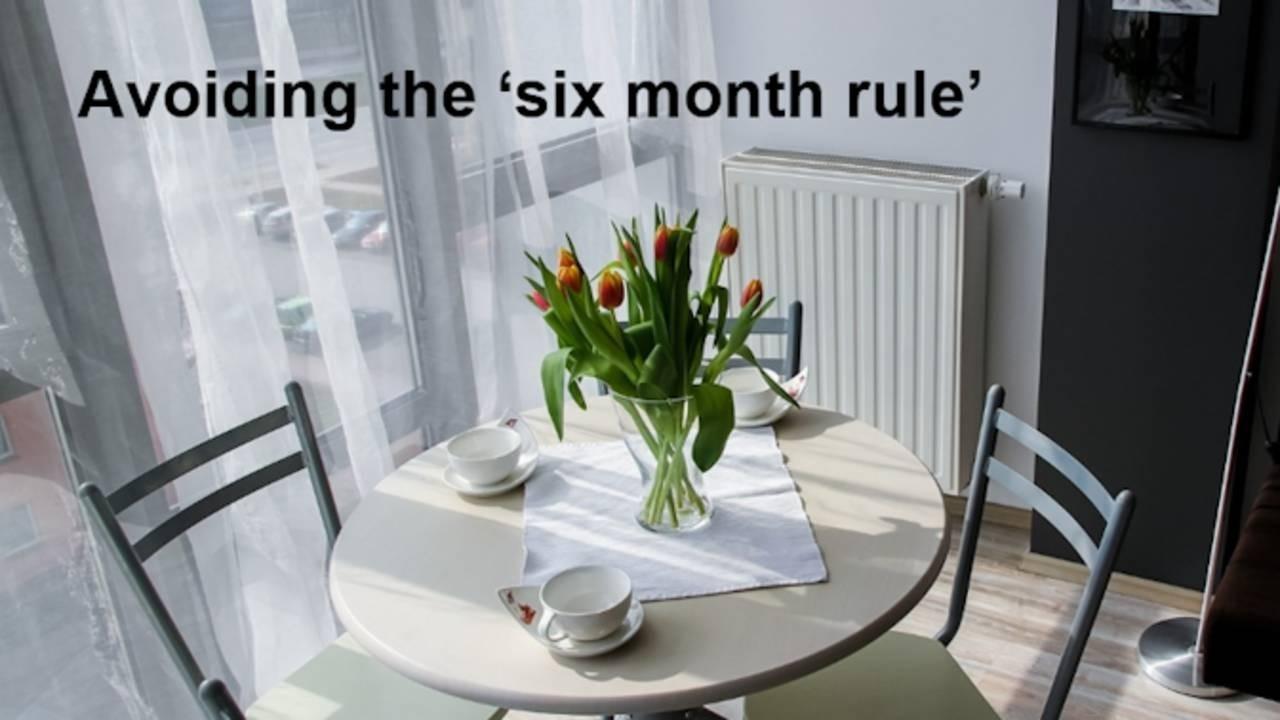6 steps to getting a better valuation

When you’ve refurbed your property and are looking to remortgage, you have a challenge. If you’ve bought within the last year or so, the lender’s valuer will be focused on the sum you paid for the property.
It doesn’t matter if you paid 30% less than the identical house up the road went for – they’re only interested in what you paid, not what the property is worth. So you need to take positive action to minimise the risk of a refinance survey down-valuation.
These are the six essentials you need to cover
- Turn up – if you’re not there you have no chance of helping the surveyor to see the real picture
- Provide an uncosted works schedule of all improvements made. Make this as detailed as possible
- Provide plenty of photos of the property as it was when you bought it. Include ‘during’ and ‘after’ photos taken from the same angles so the surveyor understands the scale of work
- Provide examples of similar properties from the nearby streets with SOLD prices within last 6 months. Ignore ...
Two into one won’t go

THE QUESTION
If we were purchasing a property for cash would it be possible to purchase using two bridging providers to provide 100% of the purchase price?
The first one would have the first charge and the second would provide bridging on a second charge basis (such as Precise) and both forwarded amounts would be combined to form a 100% cash purchase.
The intension here isn't to deceive either provider and to be up front from the outset with both providers - just interested in other opinions as to whether it's doable.
THE ANSWER
No bridger is going to lend you 100% of the value of a property even if they have a first charge over it. They will never put themselves in a position where, if they had to sell the property quickly, they would be unable to recoup all of their investment.
If no bridger will lend 100% of value on a first charge, there is zero chance of any bridger being daft enough to top up to 100% of value on a riskier second charge.
However, if the question alters to ...
No cash? No problem!

When you’re buying property as an investment you need capital to put down a deposit – and then it’s locked into your property for six months or more, until you can remortgage.
With this approach you’ll be lucky to manage to add two properties a year to your portfolio, unless you have a very big nest egg. The do you want to lock your capital into a mortgage? You don’t have to, there are creative financial packages specially developed for property investors.
Do you fit the BTL lender’s typical profile?
Buy-to-let lenders like their clients to have a nice secure full-time job earning a minimum of £25,000 a year and have their own cash for at least a 25% deposit. If you have too many properties it can make them nervous in case you leave your secure job to become a full-time investor.
They don’t like people who want to remortgage their property after six months when the property has been refurbished and is now worth a lot more.
Serious property investors need to take a different app...
Opportunities you should not overlook

Are you looking out for unmortgageable properties with problems that you can solve? They’re lucrative investments if you know how to leverage them – and with smart financing, using bridging they are great opportunities.
These are all great for intelligent investors, but mortgage lenders won’t touch them.
- A derelict property
- Properties where part of the building is in severe disrepair and needs demolishing
- Properties without a kitchen and bathroom
- Properties with multiple kitchens
- Most lenders do not lend on properties valued below £50K, especially buy to let lenders
- Most lenders will not lend on a leasehold property with a short lease; typically less than 70 years
- Lenders are very unlikely to lend on a property with sitting tenants/Regulated Tenancies
- Properties with any kind of structural defects
- Properties with damp, mould, dry or wet rot, wall tie problems
- Properties where planning applications have not been applied for correctly i.e. flat conversions with no PP
- A prop ...
Avoiding the ‘six month rule’

THE QUESTION
If I buy a property for cash through a Limited Company, does the 6 month rule regarding remortgaging apply?
THE ANSWER
Some lenders choose to apply a 6 month restriction, whilst others don’t. Actually, it isn’t really a rule, just a restriction, but it has commonly become known as ‘the six month rule’.
For those lenders that apply it, the point to get clarity on is that it is a length of ownership restriction, not a method of purchase restriction. This means that, if a lender requires you to own the property for 6 months, the restriction will apply regardless of the entity whether you bought it as an individual or a company and regardless of the method you used to buy it, cash, bridging or any other method.
If you want to buy cash and refinance within six months, simply pick a lender that does not invoke the restriction. Any decent broker will be able to source those lenders for you.
It is also worth highlighting the other issue you don’t mention, but is almost ce...
Retirement properties – a good deal?

THE QUESTION
Do you have experience with renting Retirement properties? Is it a good idea to buy a flat at the seaside and rent it as a retirement property?
THE ANSWER
There are two issues here:
- Renting properties that are part of a retirement complex.
- Buying a flat and renting it to a retired person – or people.
Number one is a great idea if you have cash to burn! No mortgage lender will touch these with a bargepole.
Retirement properties have covenants that restrict who can buy them, who can live in them and whether they can be rented.
All retirement properties will be restricted to people who are over 55 years old. Some will only be able to be bought by buyers over that age and many will only be permitted to be occupied by the owner and renting out is prohibited.
If you want to park your cash in a flat that can never be mortgaged, can only ever be sold to someone over 55 and has age restrictions on who can live in it, great. The reality is there are probably much bet...
Getting the most for your money

THE QUESTION
Does bridging lend enough to cover the purchase price and the refurb cost? If not, how can you get the maximum amount of funding?
THE ANSWER
Most bridgers lend 70% of the purchase price, but a handful lend 70% of value. This is great if you are buying below market value (BMV) as you can use the discount towards your deposit, but to buy with no money down (NMD) you would need a discount of 30% plus.
You would still need to pay for the refurb, although some bridgers will lend you money to cover that too, but in staged payments and in arrears. This means you would still need some cash to get the project started. It may be possible for you to borrow the reduced amount of cash you need privately and bridge the rest.
For example: I brokered a deal last year where the asking price was £350k. A £250k offer was accepted, which meant the bridger lent 95% of purchase price.
The refurb cost was £50k, the borrower spent £25k of their own cash, then the bridger lent another £...
The risks of buying a non-standard construction property

THE QUESTION
I’ve just been offered an HMO in need of some work. There's about £20k in the deal, and it could be flipped or end up as NMLI (no money left in), but it's a Wimpey no-fines house, i.e. poured concrete construction. I have heard that Birmingham Midshires lend on these, but considering an exit strategy (immediate or in future) is it wise to go down this route?
If a flip, will buyers be put off by the fact there's only one potential lender. If buy to hold, is it possible that the one available lender could re-assess their exposure and pull that product, making it a cash only deal – and wiping the profit out of the deal?
THE ANSWER
I see this regularly – non-standard construction properties where the reduction in price comparable to similar standard construction properties attracts investors like moths to a flame.
These are mostly properties built for councils, post-WW2, by the prominent builders of the day. Concrete construction was a cheap, easy and quick way of bu...
Buying a B&B

THE QUESTION
I’m looking for finance to buy a small B&B, what do you recommend?
THE ANSWER
Small B&Bs tend to be problematic to finance. This is usually because the owners have a narrow view (encouraged by their accountant) of the property’s value based on keeping the taxable profits of the business down to a minimal level.
Of course they benefit by pocketing almost all of the turnover for a number of years, but it bites them in the bum when they come to sell it!
First thing any lender we/you approach wants to see the latest three year’s accounts and, of course, they are rubbish showing the business hardly makes a profit (on paper). Thus you either get declined for a mortgage completely or get offered a ridiculously low loan-to-value. As a result purchasing this type of business tends to require all or mostly all cash because banks won’t lend on them.
It is possible that you have found one of the minority of savvy B&B owners that works out 3 years before they sell it that they...
Dealing with lease extensions

THE QUESTION
I have seen a property that has 60 years remaining on the lease with great potential to develop and sell, but the price is at market value and the length of the lease makes it a risky proposition. If we could get a lease extension prior to purchase that would work, but agent claims it will cost £107,000.00 on a property valued at 600,000.00. I need expert advice on the best way to tackle this.
THE ANSWER
First of all, get realistic about the value of the property pre and post lease extension. Get clarity around the costs of buying, refurbing, extending the lease and selling; factor in the profit you need to make. This will give you the realistic price you need to buy at or below.
Negotiate the purchase price you pay based on the fact that this is cash buyer only territory. This means that those who have the ability to buy it will want a healthy discount to reflect the scarcity of people with the ability to complete the purchase.
- Get the owner tied into you as a ...




